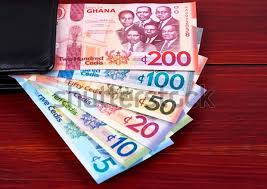
How do we get cedi to be strong?
The Ghana currency, the cedi, seems to have a mind of its own as some analysts have suggested.
This is because, despite the many policy interventions, the cedi doesn’t seem to respond positively, thereby depreciating continuously over the years.
At the height of the 2022 economic crisis, such was the rate of depreciation on a daily basis that it was feared the cedi could reach a new record of GH₵20 to the dollar.
It earned the unenviable position amongst the worst-performing currencies in the world.
Lest we forget, the depreciation of the cedi was also a key factor that led to the redenomination of the currency in 2007.
In undertaking that exercise, we knocked off four zeros. In reality, however, the value was the same.
We gained renewed confidence in the cedi as it was trading at GH₵1 to US$1.
The cedi has been a major challenge for all governments in recent memory, especially under the 4th Republic.
It, therefore, begs the question; how do we get the cedi to behave “normally”? The solutions to the cedi conundrum, we are told, are not far-fetched as many economists have in the past professed.
So what then is our challenge? Why are not able to deal with the cedis’ crisis over the years?
The Minister of Finance, Dr Amin Adams in a recent press conference was upbeat about dealing with the cedi crisis, saying “we expect the cedi’s stability to improve into the medium-term as we complete debt restructuring, make more progress on fiscal consolidation and improve our reserves over the medium- term.
“The recent pressures we are observing on the cedi is largely on the back of the strengthening of the US dollar against major trading currencies, seasonal forex demand, including elevated demand from corporate institutions, payment to contractors and independent power producers; high cedi liquidity and speculation,” the minister said.
As part of measures to address the depreciation of the currency, he said the government was fast-tracking the fiscal consolidation processes through rationalisation of spending and enhancement of revenue mobilisation.
While the minister's solutions sounded fine, there are clear and present challenges that need to be tackled head-on.
This includes the review of the laws that mandate some Financial Technology firms (FINTECHs) to hold foreign currencies offshore as some analysts have revealed.
According to the World Bank, the country recorded US4.7 billion in foreign currency, however, only 2.6 billion was recorded in the Bank of Ghana’s balance sheet as research has revealed.
This indicates that over US$2 billion was sitting in the offshore accounts of FINTECH companies.
In its recommendation to the government, the Institute of Economic Affairs (IEA), proposed a 17-point measure to stabilise the local currency, from the short-term to long-term perspectives.
Among them include, Ghanaian ownership of the economy, industrialisation, acceleration of the external debt restructuring, enforcement of the foreign exchange market regulations, checks on illegal forex dealings and repatriation of company profits.
The Graphic Business had cautioned over the past year that this economy is too fragile to be over-liberalised. Even the proponents of the free-market economies are currently imposing tariffs and taxes on imported goods that threaten their local industries.
Likewise, we must, out of necessity, provide the policy directions that will isolate our industries from the unfair competition, especially cheap imports, some of which are even of less quality than what is produced locally.
This is one sure one of saving the cedis from pressure as the country’s huge imports continue to soar among many other solutions provided above.
We cannot do the same things repeatedly and expect different results.